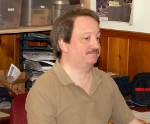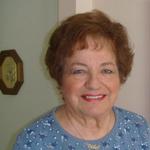Well, it's been quite an adventure so far. Over 18 years ago, I noted serious problems with my sleep. Fortunately, my wife suspected I might have obstructive sleep apnea. She brought information and articles to my attendtion. We talked about it. I had just about decided that I ought to look into it, when one night I snored so loudly the terrified my two small children at the time.I get up. I walk. I fall down. Meanwhile, I keep dancing. --Rabbi Hillel
Many of you have probably been there. I was so tired that I would fall asleep at the drop of a hat. Or while driving. Or in a meeting. It became bad enough that I would even dream when I blinked. Yikes!
Well, at the time, the procedure was to order two different sleep studies. The first recorded and reported my sleep without a CPAP unit. After the lab scored the data and reported to the doctor, we reviewed the findings. CPAP units were fairly new at the time, so not an automatic next option. I asked if we should consider it, since the lack of sleep was becoming dangerous for me and others.
The second night included the CPAP unit titration. Though it took some adjustment time, once the correct pressure was reached, I was "out"! The next thing I knew the sleep technician was waking me and I was amazed to discover that I had slept for hours. I was hooked! So, I started to use a REMstar Choice CPAP unit.
Sure, it took a while to adjust to the mask and CPAP unit. Shoot, even to this day, I sometimes have problems with claustrophobia and the mask. But sleeping with the xPAP unit is so much better than sleeping without it that I do what I need to work with it.
I added a passover humidifier after a couple of years. And so it went for several years.
Unfortunately, it also appears that I had underlying problems with a neurological issue. I did not know why at the time, but things were not what they should have been. About four or five years after I started to use the CPAP unit, I found my sleep had degraded. So, back for further testing.
This time, the sleep technician noted a lot of problems breathing against the CPAP. It caused numerous arousals throughout the night. As a result he switched to BiPAP and voila! My sleep improved tremendously.
So, I switched to a Respironics BiPAP unit. And that lasted for another 10 years.
Please don't get me wrong, if you use BiPAP you almost certainly do not have neurological problems. Some people just need the two levels of pressure for inhalation and exhalation.
In the meantime, other symptoms of my neurological issue started to surface. I started to have problems with balance and other indications of problems with my cerebellum. It finally took a neuro-opthamologist to diagnose this as problems with my cerebellum. After many, many tests my neurologist decided this was something call Sporadic OPCA (ollivopontocerebellar atrophy). Fortunately, it appears to be progress fairly slowly.
In the midst of the testing, I tried other neurologists and sleep specialists. Finally, I switched to my current sleep specialist. I needed a new BiPAP unit. They eventually wear out! The sleep study showed I needed a slightly different pressures. Due to a miscommunication on my part (not enough sleep mean I did not understand the specialist correctly), I did not return after the sleep study. I should have.
My sleep continued to deteriorate. I started to dread going asleep. Every time I tried to fall asleep, I would wake with a shot of adrenaline coursing through my system. It does not take long before that becomes unbearable.
By this past summer, I was getting two to four hours of sleep per night. So, back to the sleep specialist. He ordered an Arterial Blood Gas (ABG) and Pulmonary Function Tests (PFTs). Those demonstrated that I don't normally get enough oxygen. Being overweight does not help this, but I suspect ongoing problems with Central Apneas - even while awake - does not help. He also ordered another sleep study.
If a sleep study should show the problems with sleep, it was a resounding success. If it should help them titrate the BiPAP unit to find the best pressure for me, it as a miserable failure! I slept very little. My central apneas were more than six times the obstructive apneas. It was a miserable experience.
Note that though my experience was horrible, the sleep lab and sleep technician were wonderful. They made it bearable.
So, back to the sleep specialist, who helped me address problems with falling asleep. He tried two different perscription medications to help with sleep. (Ambien does nothing for me, but Zanax seems to help). He also tried a prescription to address the Restless Leg Syndrome (though I think that dosage needs to be increased because it does not always help). And then back to the sleep lab to be titrated with a BiPAP AutoSV unit.
So, the medication helped reduce the restless legs. ( Though it helps to take it at the proper time - Doh! )
The medication also helped me get to sleep. I note that I tend to wake up two to four hours after I fall asleep when I take it. So, it was a bit interesting for me to monitor how the unit worked as I started to fall asleep the second time.
So, how was the AutoSV unit? Well, it was quite an experience. It includes a backup rate (like a BiPAP S/T unit). So, as I fall asleep and fail to breathe it switches to inhalation pressure (starting at the IPAP minimum of 13cm H2O) and works up to the IPAP maximum (30cm H2O). But the AutoSV unit does much more than that. It seemed to play "follow the leader" with me. We all have a normal pattern to our breathing. Or we should. The AutoSV unit helps normalize the breathing pattern. And that was odd. But for someone who constantly stops making an effort to breathe, this was actually very comforting.
And the results of using the AutoSV unit and the medication? The apneas dropped to zero. I knew it was better. I slept more deeply than I had in months. I still had some Respiratory Effort Related Arousals (RERAs). But some RERAs is better than all those apneas. And I suspect that as I adjust to how the AutoSV unit works, those arousals will drop. Some will still be there, since the unit essentially is trying to remind my body to do what it should be doing ... Breathe, baby, breathe!
So, now to wait for my neurologist / sleep specialist to prescribe the unit and medications.
What lessons can I offer to those of you who hung in there for this long story?
First, hang in there. Your needs may change over time. You should be proactive and manage your own situation. Don't be afraid to ask for a second opinion, if you find your sleep is not improved.
Second, most people will not have quite this adventure. And that is good.
I do not diminish your struggles. We all have our own burdens. Yet, through groups like this and A.W.A.K.E groups it is possible to band together to help us encourage each other.
But most importantly, in spite of our current problems, remember to keep on dancing. Enjoy life. And remember that your sleep is a precious resource you should nurture and enjoy.
Regards,
=jbf=
John B. Fisher














